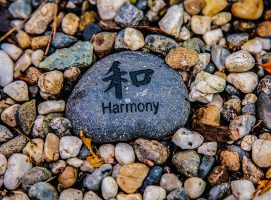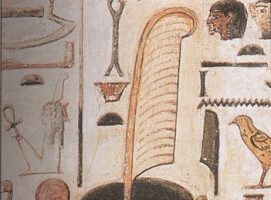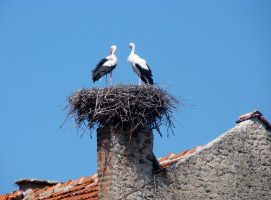Showing 618 articles
The need for a vision of the future
Author: Sabine LeitnerNovember 12, 2016
I recently read a review of the book “Eden 2.0: Climate Change and the Search for a 21st Century Myth”. The central argument of the book is that humanity needs to find – rather fast – a myth that would enable us to transcend our differences and inspire us to follow a radically new course. [...]John Dee – Magician, Mathematician and Angelologist
Author: Julian ScottNovember 12, 2016
Earlier this year a remarkable exhibition was shown at the Royal College of Physicians in Regent’s Park, London: Scholar, courtier, magician: the lost library of John Dee. Born in 1527, of Welsh ancestry, John Dee was one of Tudor England’s most extraordinary and enigmatic figures. A brilliant mathematician, he was offered the chair of mathematics [...]Harmony and the Art of True Friendship
Author: Ran KremerSeptember 24, 2016
A wise man once said, ‘One close real friend is better than ten distant and estranged brothers.’ Does true and unconditioned comradeship still exists in the 21st century? How different is real friendship from having casual friends or from “Facebook Friends”? Can this kind of lasting and profound friendship be found? How and where? There [...]Down the Rabbit Hole: Tasneem Zakaria Mehta on Preservation of Heritage
Author: Manjula NanavatiSeptember 24, 2016
In five years Tasneem Zakaria Mehta revitalized a decayed and dying museum, transforming it into a vital and accessible cultural focal point for Mumbai. As vice-chairman of the Indian National Trust for Art and Cultural Heritage (INTACH) and Honorary Director of the Dr. Bhau Daji Lad (BDL) Museum, Tasneem spearheaded the exhaustive research and the [...]Living in Interbeing
Author: Sangeeta IyerSeptember 23, 2016
In the journey of life as we grow in consciousness, we start to become aware of a certain truth that dawns on us as gently and as lovingly as the first rays of the rising Sun – that we are all ‘One Life’, deeply connected to each other in mystic and mysterious ways. James Cameron’s [...]Living Together in Harmony
Author: Delia Steinberg GuzmánSeptember 23, 2016
Those who are incapable of living in harmony with others are also incapable of living in harmony with themselves. What they can’t achieve when working with others they won’t achieve for themselves either. – Delia Steinberg Guzmán Human unity It is our conviction that the human soul is essentially one, so we cannot establish distinctions based [...]Volunteering for True Change
Author: Trishya ScrewvalaSeptember 23, 2016
Winston Churchill famously said, “We make a living by what we get but we make a life by what we give”. When we speak of volunteering today, we often think of people who have “more”, an abundance of knowledge or resources, sharing with those who we consider to have “less”. However, if we look at [...]Education: To What End?
Author: Archana SamarthSeptember 23, 2016
“Your children are not your children. They are sons and daughters of Life’s longing for itself. They come through you but not from you. And though they are with you yet they belong not to you. You are the bows from which your children as living arrows are sent forth. The archer sees the make [...]In Search of Unity
Author: Yaron BarzilaySeptember 23, 2016
By investigating some ancient traditions from various places and various historical periods, it appears that the suggested path of man’s development is synonymous with the principle of Unity. The search for Truth, a higher reality, has often been presented as an ability to overcome the illusion of separation which causes man to act in contradiction [...]Soil, Soul, Society – Rendezvous with Satish Kumar
Author: Manjula NanavatiSeptember 23, 2016
Activist, Author, Academic. Environmentalist, Humanist, Visionary. Satish Kumar believes that the spiritual aspect of our ecosystem has been lost in modern environmental debates, and has been replaced by systemic violence; towards the land, animals, mankind, and even towards ourselves. He maintains that reverence for nature is the only thread that can mend and weave together [...]Urban Wildlife
Author: Miha KosirSeptember 7, 2016
At the beginning of the 19th century three out of four Britons lived in the countryside, where they worked the land. By the end of the 19th century three out of four lived in the city. This was a result of the industrial revolution, which marks a turning point in history. The speed of urbanisation [...]










